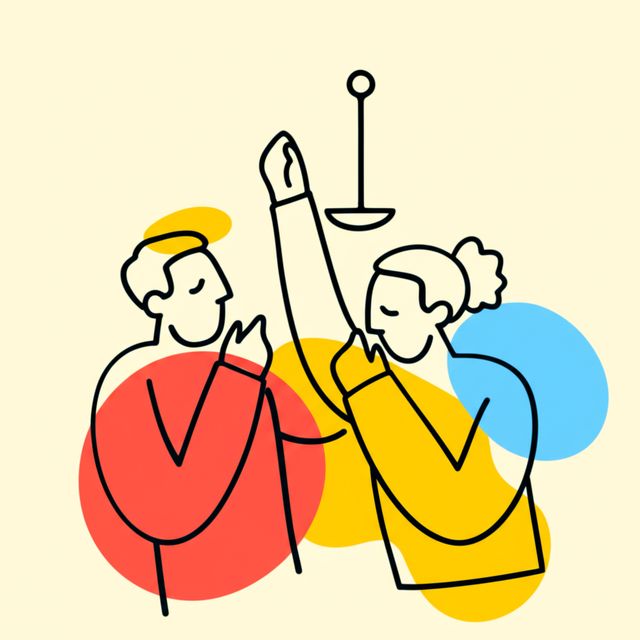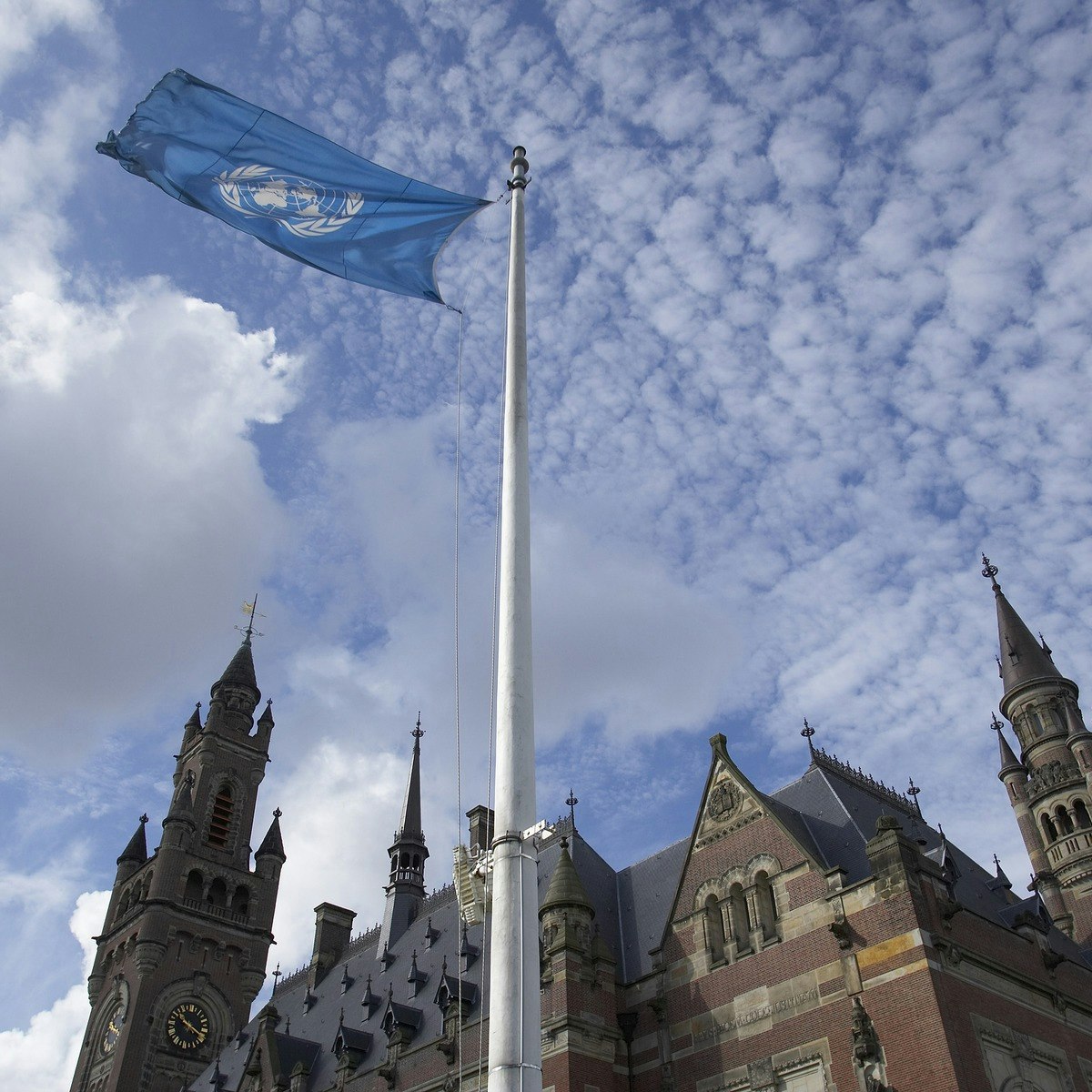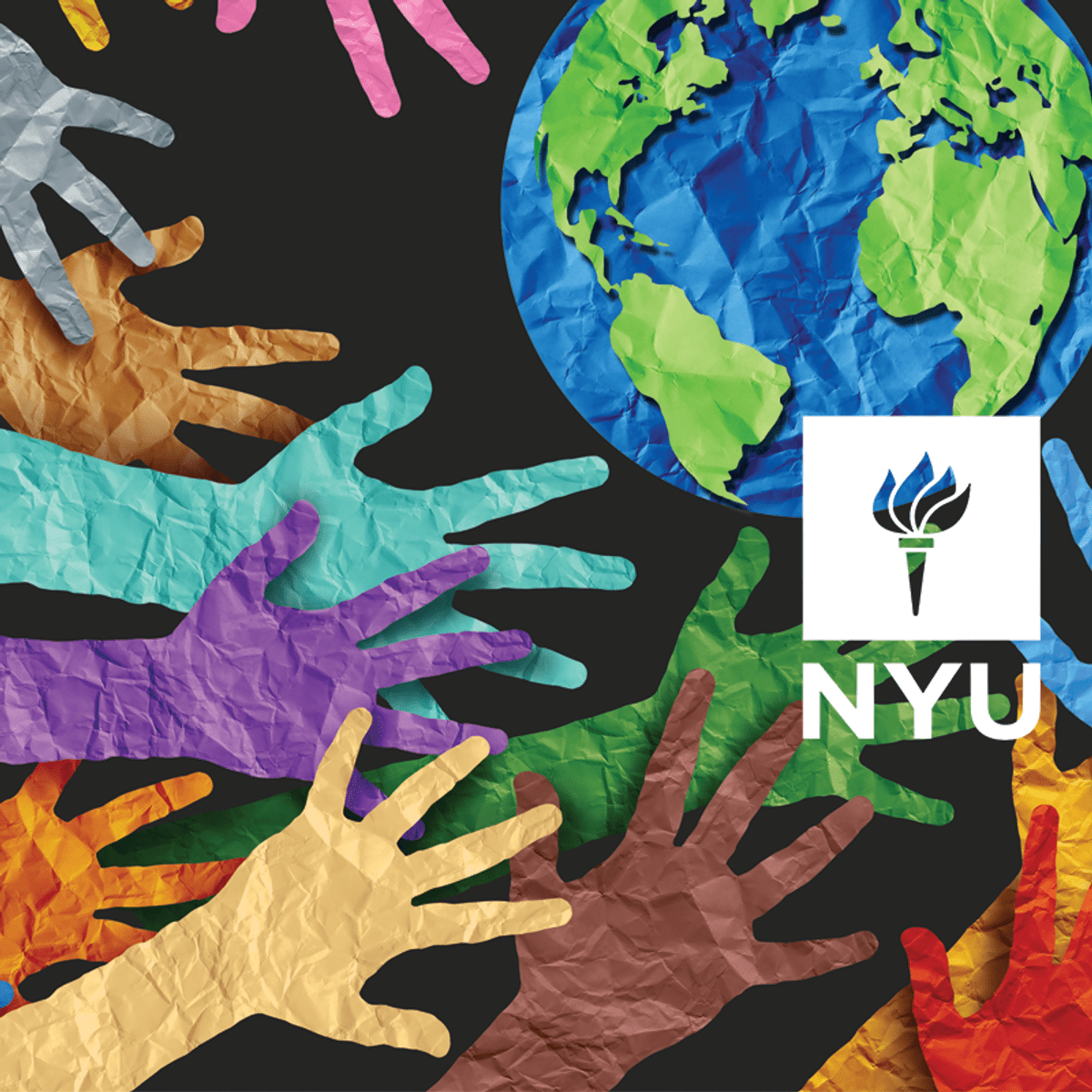Human Rights Advocate
Human Rights Advocate
A Human Rights Advocate is a professional dedicated to promoting, protecting, and defending the fundamental rights and dignity of individuals and groups. They work across various sectors, including non-governmental organizations (NGOs), governmental bodies, international organizations like the United Nations, and sometimes within corporations focusing on social responsibility. Their core mission involves identifying, investigating, and challenging violations of human rights, striving to create a more just and equitable world.
This career path often attracts individuals passionate about social justice, equality, and fairness. The work can be profoundly rewarding, offering opportunities to effect meaningful change in people's lives and contribute to systemic improvements. Engaging directly with affected communities, influencing policy, and raising public awareness are just some aspects that make this field dynamic and impactful.
Introduction to Human Rights Advocacy
Understanding the field of human rights advocacy begins with recognizing its purpose and scope. It involves active efforts to uphold the principles enshrined in international human rights law and standards for everyone, everywhere.
Defining Human Rights Advocacy
At its core, human rights advocacy is the process of actively supporting a cause or policy related to human rights. This can involve a wide range of activities aimed at preventing abuses, protecting victims, and promoting universal respect for human dignity. Advocates work on diverse issues, from civil and political rights like freedom of speech and fair trials, to economic, social, and cultural rights such as access to healthcare, education, and adequate housing.
The scope is broad, addressing concerns like summary executions, torture, arbitrary detention, discrimination based on race, gender, or sexual orientation, forced evictions, and environmental justice. Advocates might focus on specific vulnerable groups, including women, children, indigenous peoples, refugees, migrants, LGBTQ+ individuals, or persons with disabilities.
Essentially, anyone acting peacefully to promote or protect human rights can be considered a defender or advocate. Their work might involve direct support for victims, legal challenges, policy analysis, or public campaigns to raise awareness and inspire action.
A Brief History of the Role
The concept of advocating for basic rights has deep historical roots, but the modern human rights movement gained significant momentum after World War II. The atrocities committed during the war spurred the international community to establish frameworks to prevent future violations and protect fundamental freedoms.
The adoption of the Universal Declaration of Human Rights (UDHR) by the United Nations in 1948 was a landmark event. It established a common standard of achievement for all peoples and nations, outlining fundamental rights to be universally protected. This document, while not legally binding initially, laid the groundwork for numerous international treaties and national laws.
Over the decades, the role of the human rights advocate evolved alongside the development of international law and institutions. NGOs like Amnesty International and Human Rights Watch emerged as powerful forces, employing research, documentation, and public pressure to hold governments accountable. The rise of digital technology has further transformed advocacy, creating new avenues for mobilization and information sharing, but also presenting new challenges.
Here are some foundational texts and analyses that explore the evolution and philosophy behind human rights.
Foundational Principles
Human rights advocacy is guided by several core principles that underpin the entire field. These include universality, indivisibility, interdependence, equality, and non-discrimination. Understanding these principles is crucial for anyone considering a career in this area.
Universality means that human rights belong to all people, everywhere, regardless of nationality, ethnicity, gender, religion, or any other status. Indivisibility and interdependence highlight that all rights—civil, political, economic, social, and cultural—are interconnected and equally important. One set of rights cannot be fully enjoyed without the others.
Equality and non-discrimination are central tenets, asserting that everyone is entitled to their rights without distinction of any kind. Advocates strive to challenge systemic barriers and biases that prevent certain groups from enjoying their rights equally. These principles form the ethical bedrock upon which advocacy efforts are built.
Advocacy in Global and Local Contexts
Human rights advocacy takes place at various levels, from grassroots community organizing to influencing international policy. Local advocates often work directly with affected populations, addressing specific violations within their communities or countries. Their counterparts are frequently local or national authorities.
Global advocacy involves working with international bodies like the UN, regional courts, or transnational networks. These advocates might focus on monitoring worldwide trends, submitting reports to international mechanisms, or campaigning for changes in international law or the policies of multinational corporations. They often collaborate with local partners to amplify voices from the ground.
The context significantly shapes the strategies and challenges faced. Advocates in conflict zones or repressive regimes face immense personal risks, while those in stable democracies might focus more on systemic issues or legislative reform. Understanding both the local nuances and the global frameworks is essential for effective advocacy.
Key Responsibilities of a Human Rights Advocate
The daily work of a human rights advocate can vary significantly depending on their specific role, organization, and area of focus. However, several core responsibilities are common across the field.
Investigating and Documenting Violations
A fundamental task for many advocates is gathering information about potential human rights abuses. This involves meticulous research, fact-finding missions, interviewing victims and witnesses, and collecting evidence. The goal is to build a clear, accurate picture of the situation.
Documentation is crucial. Advocates compile detailed reports, case files, and databases chronicling violations. This evidence serves multiple purposes: it can be used in legal proceedings, submitted to national or international bodies, shared with the media to raise awareness, or used to inform advocacy strategies.
This work requires strong analytical skills, attention to detail, sensitivity when dealing with trauma survivors, and often, courage to operate in difficult or dangerous environments. Maintaining objectivity and adhering to rigorous methodologies are paramount to ensure credibility.
Influencing Policy and Legislation
Advocates often work to change laws, policies, and practices that enable or perpetuate human rights violations. This involves analyzing existing legislation, identifying gaps or problematic areas, and proposing concrete reforms. They might draft alternative policies or legal amendments.
This responsibility requires engaging with policymakers, government officials, legislators, and other stakeholders. Advocates present evidence, make arguments, and lobby for change through meetings, presentations, and written submissions. Building relationships and understanding political processes are key.
Successful policy advocacy demands strong research, clear communication, and persuasive argumentation skills. It often involves collaborating with legal experts, researchers, and other organizations to build coalitions and strengthen campaigns for legislative or policy change.
Educating and Mobilizing Communities
Raising public awareness about human rights issues is another vital function. Advocates develop educational materials, organize workshops, conduct training sessions, and utilize media platforms to inform the public about their rights and specific violations occurring.
Mobilization involves empowering individuals and communities to take action. This could mean organizing peaceful protests, coordinating letter-writing campaigns, facilitating community meetings, or supporting grassroots movements. The aim is to build collective power to demand accountability and change.
This aspect of the work requires excellent communication, facilitation, and organizing skills. Advocates need to be adept at translating complex issues into accessible language and inspiring people from diverse backgrounds to get involved.
These courses offer insights into community organizing and social justice principles.
Partnering for Impact
Human rights work is rarely done in isolation. Collaboration is essential for maximizing impact. Advocates frequently partner with other NGOs, community groups, legal professionals, academics, international bodies, and sometimes even government agencies.
Building and maintaining effective partnerships requires strong interpersonal skills, negotiation abilities, and a collaborative mindset. Advocates need to coordinate efforts, share information, and leverage the diverse strengths and resources of different actors.
These collaborations can take many forms, from joint research projects and coordinated advocacy campaigns to referral networks for victim support. Working effectively with partners across different sectors and cultures is crucial for addressing complex human rights challenges systemically.
Essential Skills and Qualifications
Pursuing a career as a human rights advocate requires a combination of knowledge, practical skills, and personal attributes. While formal qualifications are often important, certain competencies are universally valuable in this field.
Legal and Research Foundations
A solid understanding of international human rights law, humanitarian law, and relevant national legal frameworks is often essential. While not all advocates are lawyers, legal literacy is crucial for identifying violations, analyzing policies, and formulating arguments.
Strong research skills are equally vital. This includes the ability to gather information from diverse sources, critically evaluate evidence, synthesize complex data, and identify patterns or trends. Proficiency in using legal databases and conducting field research may also be necessary.
Developing these foundational skills enables advocates to build credible cases, draft compelling reports, and engage effectively in legal and policy debates. Rigorous analysis underpins effective advocacy.
These courses provide introductions to international law and human rights principles.
These books offer in-depth knowledge of international human rights law.
Communicating Across Cultures
Human rights work often involves interacting with people from diverse cultural, social, and linguistic backgrounds. Effective cross-cultural communication is therefore a critical skill. This includes active listening, empathy, and the ability to adapt communication styles appropriately.
Advocates must be able to build trust and rapport with victims, witnesses, community leaders, government officials, and international partners from different contexts. Cultural sensitivity and awareness are paramount to avoid misunderstandings and ensure respectful engagement.
Furthermore, advocates need strong written and verbal communication skills to articulate complex issues clearly and persuasively to varied audiences, whether drafting reports, giving presentations, or speaking with the media.
Navigating Crises and Building Resilience
Working on human rights issues can be emotionally taxing and, in some contexts, physically dangerous. Advocates often deal with traumatic stories, confront powerful opposition, and face significant stress. The ability to manage crises and maintain emotional resilience is crucial.
This involves developing coping mechanisms, practicing self-care, and seeking support when needed. Organizations increasingly recognize the importance of supporting the well-being of their staff to prevent burnout, which is a significant risk in this demanding field.
Crisis management skills may also involve responding effectively to urgent situations, making sound decisions under pressure, and ensuring the safety and security of oneself and others, particularly during fieldwork in volatile environments.
This course touches upon resilience in challenging contexts.
The Role of Language Skills
Proficiency in multiple languages can be a significant asset in human rights advocacy, particularly for those working in international settings or diverse communities. Fluency in languages relevant to the specific region or population group being served enhances communication and builds trust.
While English is often a primary working language in international organizations, knowledge of other UN languages (French, Spanish, Arabic, Russian, Chinese) or local languages can open up more opportunities and allow for deeper engagement with local contexts.
Even basic proficiency can be helpful. Language skills facilitate direct communication with victims and witnesses, better understanding of local media and documents, and more effective collaboration with local partners.
Consider exploring language courses on OpenCourser to enhance your profile.
Formal Education Pathways
While passion and commitment are essential, a solid educational foundation is typically required for a career in human rights advocacy. Various academic paths can lead into this field.
Undergraduate Foundations
A bachelor's degree is generally the minimum requirement. Relevant fields include international relations, political science, law, sociology, anthropology, social work, or journalism. These programs provide foundational knowledge about political systems, social structures, legal frameworks, and research methods.
Coursework focusing on international law, human rights principles, social justice, conflict resolution, or specific regional studies can be particularly beneficial. Developing strong writing, research, and critical thinking skills during undergraduate studies is crucial.
While a specific major isn't always mandatory, choosing a related field helps build the necessary knowledge base. Some universities offer undergraduate degrees or minors specifically in human rights.
Graduate Specializations
Many roles, especially in policy, research, or international organizations, require a master's degree or equivalent. Specialized graduate programs in human rights, international law (LL.M.), public policy, international development, peace and conflict studies, or related social sciences are common pathways.
These advanced programs offer deeper theoretical understanding, specialized knowledge in specific areas (e.g., refugee rights, gender justice), and advanced research training. They often include opportunities for practical experience through internships or clinical programs.
Choosing a graduate program depends on career goals. A law degree (JD or equivalent) is necessary for legal roles, while a Master of Arts (MA) or Master of Science (MSc) might be more suitable for research, policy, or program management positions.
This book delves into advanced topics in human rights theory.
Advanced Research and Doctoral Studies
For those interested in academic careers, high-level research, or specialized policy analysis, a Doctor of Philosophy (Ph.D.) or equivalent doctorate may be pursued. Ph.D. programs involve extensive original research culminating in a dissertation.
Doctoral research can focus on specific theoretical aspects of human rights, empirical studies of violations, evaluations of advocacy strategies, or the development of new legal or policy frameworks. Graduates often work in universities, think tanks, or specialized research roles within major organizations.
A Ph.D. represents a significant time commitment and is typically geared towards those seeking deep expertise and a career focused on research and scholarship in the field of human rights.
Professional Certifications
While not always mandatory like degrees, professional certifications can enhance qualifications and demonstrate specialized expertise. Certifications might be available in areas like humanitarian law, refugee protection, monitoring and evaluation, or project management for non-profits.
These certifications often involve shorter courses or training programs focused on practical skills. They can be valuable for career changers looking to gain specific competencies or for professionals seeking to deepen their knowledge in a niche area.
Organizations like the International Committee of the Red Cross (ICRC) or specialized university institutes may offer relevant certificate programs. Researching certifications specific to your area of interest can be beneficial.
Online and Independent Learning Strategies
Formal education is one path, but online learning and independent study offer valuable avenues for acquiring knowledge and skills, whether supplementing traditional education or forging a non-traditional route into human rights advocacy. The flexibility and accessibility of online resources can be particularly beneficial for career pivoters or those balancing learning with other commitments.
Leveraging Online Courses and Resources
Online courses provide an excellent way to build foundational knowledge or gain specialized skills in human rights. Platforms like OpenCourser aggregate courses from various providers, covering topics from international human rights law to advocacy techniques and regional specific issues. Many courses offer flexibility, allowing learners to study at their own pace.
These courses can introduce key concepts, historical context, legal frameworks, and practical skills. They are useful for students seeking supplementary material, professionals looking to upskill, or individuals exploring the field before committing to a formal degree program. Look for courses offered by reputable universities or organizations active in the human rights sector.
OpenCourser allows you to browse courses in Social Sciences, Legal Studies, and International Studies, save options to a list using the "Save to list" button, compare syllabi, and read reviews to find suitable learning opportunities.
These courses provide introductions to human rights concepts and specific issues, suitable for online learning.
This book provides a concise overview of human rights suitable for independent study.
Gaining Experience Virtually
Practical experience is invaluable, and the rise of remote work has created more opportunities for virtual internships and volunteer roles with human rights organizations. These experiences allow learners to apply their knowledge, develop practical skills, and build professional networks without geographical constraints.
Virtual roles might involve research support, report drafting, social media management, translation, data analysis, or assisting with online campaigns. While hands-on fieldwork is unique, virtual opportunities provide meaningful ways to contribute and learn.
Actively seek out organizations offering remote positions. Even short-term projects or volunteer tasks can add valuable experience to a resume and provide insights into the day-to-day work of advocacy.
Utilizing Open-Access Information
A wealth of information on human rights is freely available online. Reports from organizations like Human Rights Watch and Amnesty International, publications from the UN Office of the High Commissioner for Human Rights (OHCHR), academic journals, and news sources provide up-to-date information on global issues and specific country situations.
Open-access legal databases contain treaties, case law, and other essential legal documents. Familiarizing oneself with these resources is crucial for independent research and staying informed about developments in the field.
Curating reliable sources and dedicating time to regular reading and analysis helps build expertise and contextual understanding, essential components of effective advocacy.
Building an Advocacy Portfolio
Even without formal credentials or employment, individuals can build a portfolio showcasing their commitment and skills. This might involve writing blog posts or articles on human rights topics, creating educational materials, volunteering for local initiatives, or undertaking independent research projects.
Contributing to online forums, participating in relevant webinars, or translating human rights documents can also demonstrate engagement and practical skills. Documenting these activities creates tangible evidence of interest and capability.
A portfolio can be a powerful tool when applying for jobs, internships, or further education, especially for those transitioning from other fields. It demonstrates initiative, passion, and the ability to apply knowledge in practical ways.
Career Progression and Opportunities
A career in human rights advocacy can follow various trajectories, offering opportunities for growth, specialization, and impact. Understanding the potential paths and the realities of the field is important for long-term planning.
Starting Your Career
Entry-level positions often involve roles like research assistant, program assistant, field officer, or case worker. These roles provide foundational experience in research, documentation, project support, or direct work with affected communities.
Internships and volunteer positions are common stepping stones into the field, offering valuable experience and networking opportunities. Competition for paid entry-level jobs can be high, particularly in well-known international organizations. Demonstrating relevant skills, language proficiency, and a genuine commitment is key.
Initial roles focus on learning the ropes, building practical skills, and understanding the complexities of human rights work on the ground or within an organizational context.
Mid-Career Paths and Leadership
With experience, advocates can progress to roles with greater responsibility. This might include positions like program manager, policy analyst, advocacy coordinator, or team leader. Mid-career professionals often manage projects, develop strategies, supervise staff, and represent their organization externally.
Opportunities may arise to specialize further or transition into leadership roles within NGOs, government agencies, or international bodies. Some advocates move into management, fundraising, or communications director positions.
Continuing professional development, building a strong network, and demonstrating leadership potential are important for career advancement. Experience gained in human rights can also be valuable for transitions into related fields like international development, diplomacy, or academia.
Areas of Specialization
The field of human rights is vast, allowing for specialization in numerous areas. Advocates might focus on specific rights (e.g., freedom of expression, right to health), particular groups (e.g., children's rights, women's rights, refugee rights), or specific themes (e.g., business and human rights, environmental justice, transitional justice).
Geographic specialization, focusing on a particular country or region, is also common. Developing expertise in a specific area allows advocates to deepen their impact and contribute specialized knowledge.
Specialization often develops through experience, further education, or focused research. It enables advocates to become recognized experts and contribute more effectively to complex challenges within their chosen niche.
These courses and topics cover specific areas within human rights.
Compensation and Funding Realities
It's important to have realistic expectations regarding compensation. Salaries in the non-profit and public sectors, where many human rights jobs are found, tend to be lower than in comparable private sector roles. Entry-level positions, in particular, may offer modest pay.
Salaries vary significantly based on the organization's size and location, funding sources, the specific role, and the individual's experience and qualifications. International organizations or large NGOs may offer higher salaries than smaller, grassroots groups. Human rights lawyers in private practice handling such cases might earn more, but competition is fierce, and pro bono work is common.
Funding challenges are a persistent reality in the humanitarian and human rights sector. Many organizations rely on grants and donations, which can be unpredictable. Recent reports, like the Global Humanitarian Assistance Report 2024, indicate a growing gap between needs and available funding, impacting organizations' capacity and stability. Job security can sometimes be precarious, tied to project funding cycles.
Ethical Challenges in Human Rights Advocacy
Working in human rights advocacy involves navigating complex ethical dilemmas unique to the field. Awareness of these challenges is crucial for maintaining integrity and effectiveness.
Navigating Neutrality and Activism
Advocates often face the challenge of balancing the need for objective reporting and impartial analysis with a commitment to activism and achieving change. Maintaining credibility requires rigorous, evidence-based work, yet the ultimate goal is often to challenge power structures and advocate for specific outcomes.
Some organizations prioritize strict neutrality to gain access and maintain trust with all parties, while others adopt more explicit activist stances. Navigating this tension requires careful judgment, transparency about methodologies and goals, and adherence to ethical principles.
The perception of bias, whether real or perceived, can undermine an advocate's effectiveness and even put them at risk, particularly when working on politically sensitive issues.
Funding and Independence
Human rights organizations often rely on funding from governments, foundations, or private donors. This can create potential conflicts of interest or raise questions about independence. Advocates must navigate the pressure to align activities with donor priorities while maintaining their principled stance.
Transparency regarding funding sources and decision-making processes is essential for accountability. Organizations strive to diversify funding streams to mitigate undue influence from any single source.
Ethical guidelines often require advocates to ensure that funding arrangements do not compromise their ability to speak truth to power or prioritize the needs of affected communities over donor interests.
Ensuring Safety and Security
Human rights defenders, particularly those working on sensitive issues or in repressive contexts, face significant personal risks. These can range from harassment, threats, and defamation campaigns to arbitrary arrest, detention, torture, and even execution, according to reports from the UN Special Rapporteur.
Advocates and their organizations must prioritize security management, including risk assessments, security protocols, and digital security measures. Protecting sources and the confidentiality of sensitive information is also a critical ethical responsibility.
Balancing the need to expose violations with the safety of advocates, victims, and witnesses requires careful consideration and strategic planning. The well-being and security of those involved must always be a primary concern.
Accountability in Advocacy
Just as advocates hold governments and others accountable, they themselves must operate accountably and ethically. This includes being accountable to the communities they serve, ensuring their work is conducted responsibly, and avoiding harm.
Mechanisms for accountability within the human rights movement include adherence to codes of conduct, transparent reporting, grievance mechanisms, and independent evaluations. Ensuring that advocacy efforts are genuinely empowering and respectful of local agency is crucial.
Ethical advocacy involves self-reflection, continuous learning, and a commitment to principles of participation, non-discrimination, and respect for the dignity of all individuals involved.
Human Rights Advocacy in Global Contexts
The practice and impact of human rights advocacy are shaped by diverse global factors, including regional dynamics, geopolitical shifts, cultural contexts, and funding trends.
Regional Dynamics and Demand
The demand for human rights advocacy varies significantly across regions. In areas experiencing active conflict, severe repression, or humanitarian crises, the focus may be on documenting atrocities, protecting civilians, and providing immediate support.
In more stable democracies, advocacy might concentrate on systemic discrimination, strengthening legal protections, or addressing economic and social rights issues. Understanding the specific political, social, and historical context of a region is crucial for effective advocacy.
Regional bodies and legal frameworks (e.g., the European Court of Human Rights, the Inter-American Court of Human Rights) also play significant roles, creating distinct opportunities and challenges for advocates working within those systems.
Geopolitics and Advocacy
Global power shifts, international relations, and geopolitical tensions significantly influence the space for human rights advocacy. The foreign policies of major powers, international alliances, and global conflicts can either support or hinder efforts to promote human rights.
Advocates must navigate these complex dynamics, leveraging diplomatic channels when possible, while also challenging governments that prioritize political or economic interests over human rights concerns. Geopolitical shifts can create new challenges, such as shrinking civic space or increased impunity for violators, but also potential opportunities for new alliances or advocacy strategies.
Understanding the interplay between international politics and human rights is essential for strategic advocacy on a global scale.
Transnational Campaigns and Cultural Nuance
Many human rights issues transcend national borders, requiring coordinated transnational campaigns. These campaigns often involve collaboration between international NGOs, local partners, and activists across multiple countries.
However, effective transnational advocacy requires careful attention to cultural nuance. Strategies that work in one context may not be appropriate or effective elsewhere. Advocates must respect local cultures, empower local actors, and avoid imposing external agendas.
Cultural competence and genuine partnership with local communities are key to building trust and ensuring that advocacy efforts are relevant, respectful, and sustainable in diverse global contexts.
Trends in Humanitarian Funding
The availability and allocation of funding significantly impact the capacity and focus of human rights and humanitarian organizations. Recent trends indicate a challenging funding landscape, with needs often outpacing available resources.
According to the UN OCHA's Global Humanitarian Overview updates, humanitarian funding has faced significant shortfalls. For instance, the funding reported by April 2024 was considerably less than the previous year, highlighting tightening budgets among key donors. This necessitates difficult prioritization by humanitarian actors.
Funding trends influence which issues receive attention and which organizations thrive. Advocates need to understand these dynamics, diversify funding sources where possible, and effectively communicate the impact of their work to donors and the public to secure necessary resources.
Frequently Asked Questions
Navigating the path toward a career in human rights advocacy often raises common questions. Here are answers to some frequently asked questions to provide further clarity.
Is a law degree mandatory for this career?
No, a law degree is not always mandatory, but it is highly advantageous, especially for roles involving legal analysis, litigation, or drafting legislation. Many advocates have backgrounds in fields like international relations, political science, sociology, journalism, or social work. Legal literacy, however, is crucial regardless of formal degree. Some roles, particularly those involving direct legal representation (like a Human Rights Lawyer), absolutely require a law degree and bar admission.
How competitive are entry-level advocacy roles?
Entry-level positions in well-known human rights organizations can be very competitive. Many applicants possess strong academic backgrounds, relevant volunteer or internship experience, and language skills. Persistence, networking, and highlighting specific skills relevant to the role are important. Gaining experience through volunteering or internships, even with smaller local organizations, can significantly strengthen an application.
Can advocacy experience transition to government/NGO leadership?
Yes, experience in human rights advocacy often provides a strong foundation for leadership roles in both NGOs and government. Skills developed in advocacy—such as policy analysis, strategic planning, communication, negotiation, and stakeholder engagement—are highly transferable. Many leaders in these sectors began their careers in advocacy or fieldwork roles.
What are burnout rates in this field?
Burnout is a significant concern in the human rights field due to the emotionally demanding nature of the work, exposure to trauma, high workloads, and sometimes precarious working conditions or security risks. Awareness of burnout is increasing, and many organizations are implementing better support systems. However, individuals must prioritize self-care and seek support to maintain long-term well-being and effectiveness.
How does remote work impact modern advocacy?
Remote work has expanded opportunities for participation in advocacy, allowing individuals to contribute from anywhere. It facilitates virtual collaboration, online campaigning, and digital research. However, it also presents challenges, potentially limiting fieldwork, direct community engagement, and relationship-building, which remain crucial aspects of much advocacy work. Digital security also becomes an even greater concern.
Are language skills more critical than legal training?
The relative importance depends heavily on the specific role and context. For legal positions, legal training is paramount. For fieldwork, community engagement, or international collaboration, language skills can be equally or even more critical than formal legal training (though legal literacy remains important). Ideally, a combination of relevant substantive knowledge (legal or otherwise) and strong communication skills (including languages where applicable) makes for the most effective advocate.
Useful Resources
For those seeking further information or ways to engage with human rights issues, here are some key resources:
- Office of the UN High Commissioner for Human Rights (OHCHR): The leading UN entity on human rights, providing extensive information, reports, and legal resources. Visit OHCHR
- Human Rights Watch (HRW): An international NGO known for its in-depth research and reporting on human rights conditions worldwide. Visit HRW
- Amnesty International: A global movement campaigning for human rights, offering reports, educational materials, and ways to take action. Visit Amnesty International
- OpenCourser: Explore thousands of online courses related to Social Sciences, Legal Studies, and International Studies to build your knowledge base. Visit OpenCourser
- University Human Rights Programs: Many universities have dedicated centers or programs focusing on human rights research and education.
Exploring these resources can provide deeper insights into specific issues, regions, and the practicalities of human rights work.
Embarking on a career as a Human Rights Advocate is a challenging yet potentially deeply fulfilling path. It requires dedication, resilience, a strong ethical compass, and a diverse skill set. Whether through formal education, online learning, or practical experience, contributing to the promotion and protection of human rights offers a way to make a tangible difference in the world. We hope this overview provides a solid foundation for considering whether this vital career is right for you.


















